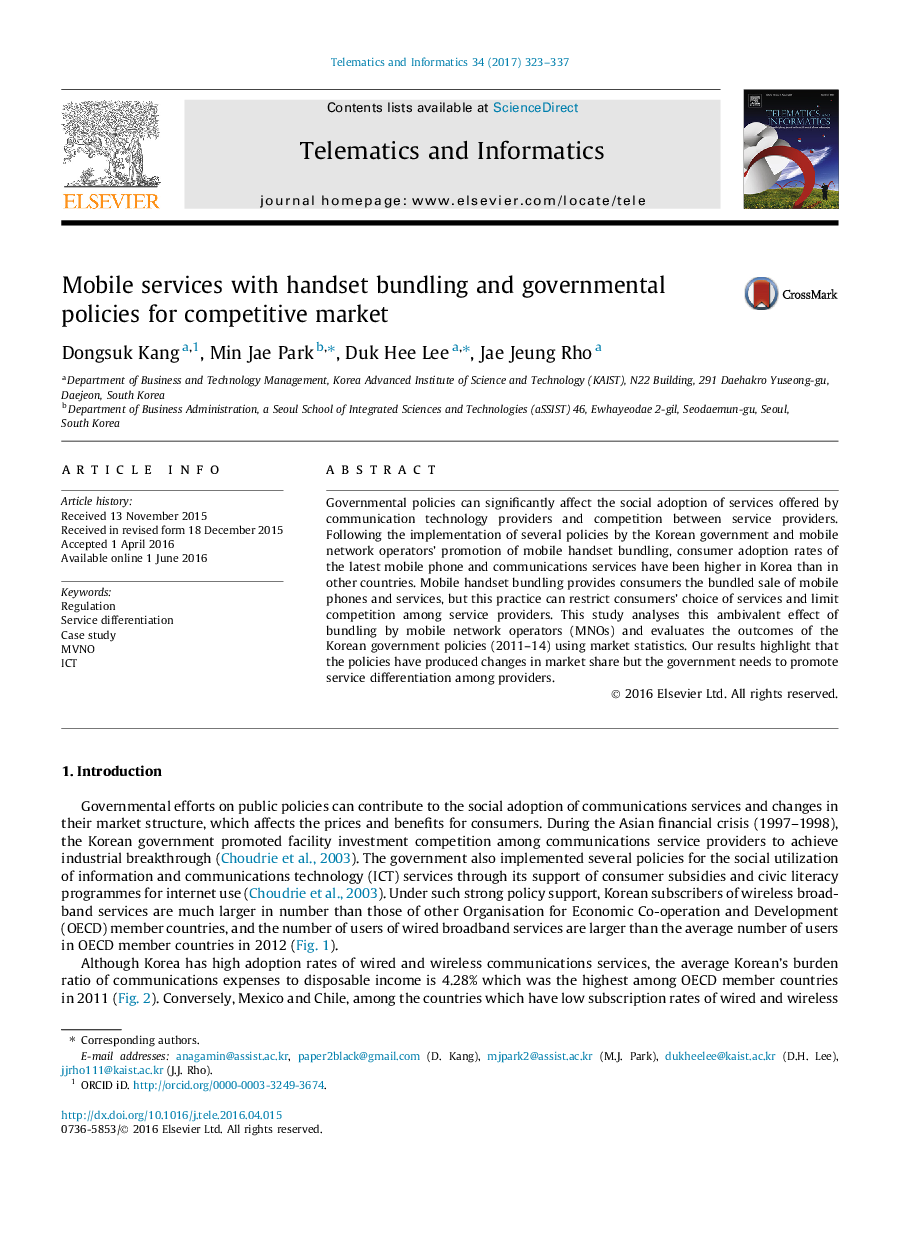| Article ID | Journal | Published Year | Pages | File Type |
|---|---|---|---|---|
| 466929 | Telematics and Informatics | 2017 | 15 Pages |
•Network operators’ mobile handset bundling has merits and demerits in mobile service market.•Sole bundled sale without unbundled option can restrict market competition and consumer welfare.•Mobile handset bundling has dominated the Korean mobile telecommunications service market.•Several Korean remedial policies have achieved the changes in the market share.•MVNOs’ business differentiation and government support can be another solution to existing bundling.
Governmental policies can significantly affect the social adoption of services offered by communication technology providers and competition between service providers. Following the implementation of several policies by the Korean government and mobile network operators’ promotion of mobile handset bundling, consumer adoption rates of the latest mobile phone and communications services have been higher in Korea than in other countries. Mobile handset bundling provides consumers the bundled sale of mobile phones and services, but this practice can restrict consumers’ choice of services and limit competition among service providers. This study analyses this ambivalent effect of bundling by mobile network operators (MNOs) and evaluates the outcomes of the Korean government policies (2011–14) using market statistics. Our results highlight that the policies have produced changes in market share but the government needs to promote service differentiation among providers.
